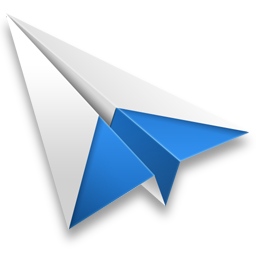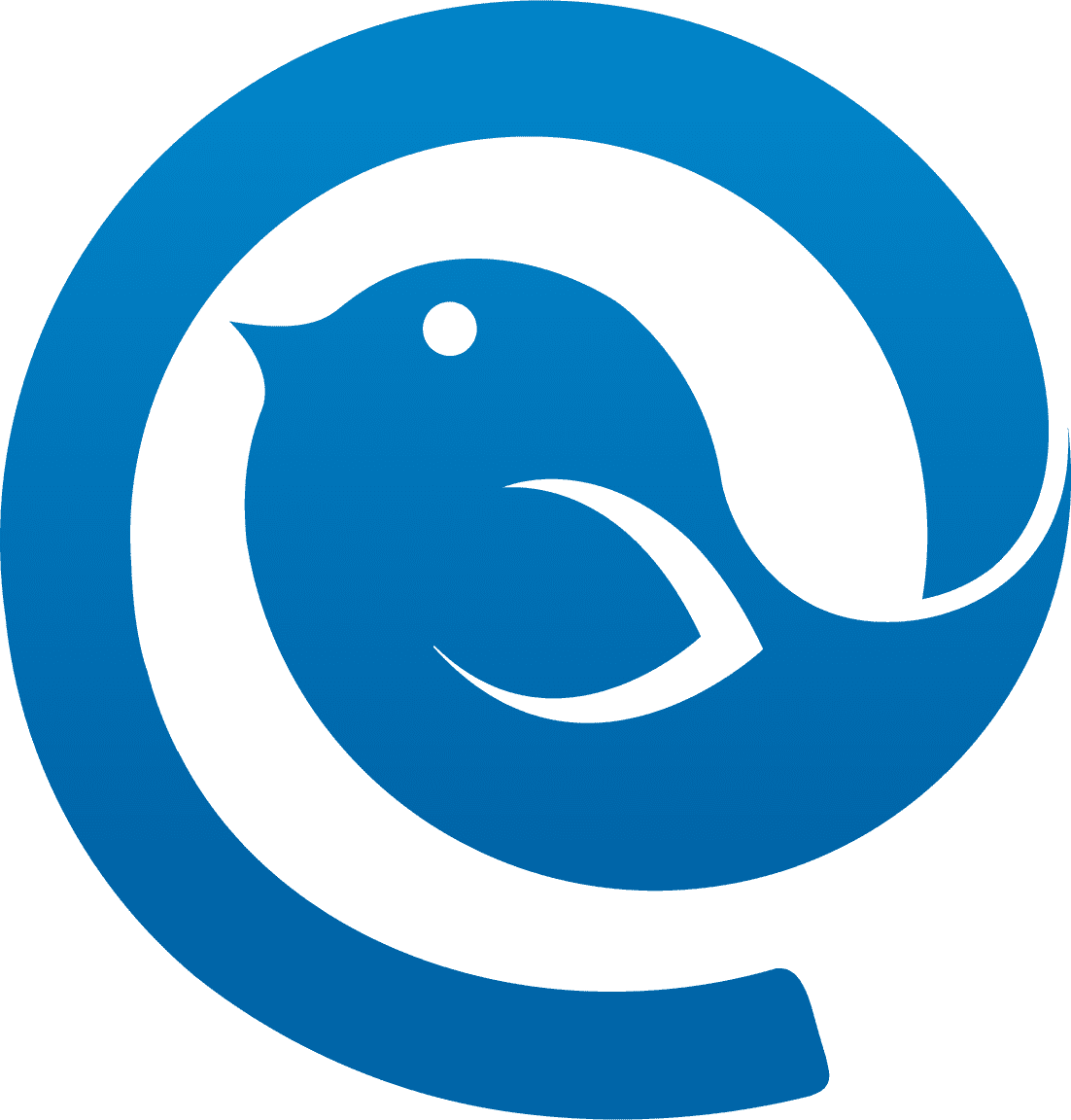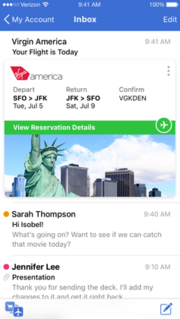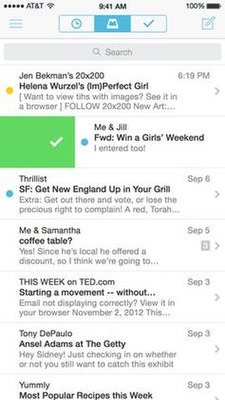
Microsoft Outlook is a personal information manager software system from Microsoft, available as a part of the Microsoft Office suite. Though primarily an email client, Outlook also includes such functions as calendaring, task managing, contact managing, note-taking, journal logging, and web browsing.

Gmail is a free email service provided by Google. As of 2019, it had 1.5 billion active users worldwide. A user typically accesses Gmail in a web browser or the official mobile app. Google also supports the use of email clients via the POP and IMAP protocols.
Push email is an email system that provides an always-on capability, in which new email is actively transferred (pushed) as it arrives by the mail delivery agent (MDA) to the mail user agent (MUA), also called the email client. Email clients include smartphones and, less strictly, IMAP personal computer mail applications.

Google Calendar is a time-management and scheduling calendar service developed by Google. It became available in beta release April 13, 2006, and in general release in July 2009, on the web and as mobile apps for the Android and iOS platforms.

Google I/O is an annual developer conference held by Google in Mountain View, California. "I/O" stands for Input/Output, as well as the slogan "Innovation in the Open". The event's format is similar to Google Developer Day.
Dropbox is a file hosting service operated by the American company Dropbox, Inc., headquartered in San Francisco, California, that offers cloud storage, file synchronization, personal cloud, and client software. Dropbox was founded in 2007 by MIT students Drew Houston and Arash Ferdowsi as a startup company, with initial funding from seed accelerator Y Combinator.

Sparrow was an email client for OS X and iOS. After a 4-month beta period, Sparrow went on sale in the Mac App Store on February 9, 2011 and became the top paid and top grossing app in less than one day. On July 20, 2012, the company announced that it had been acquired by Google and was ceasing continued development of the application except for critical bug fixes.

Google Drive is a file storage and synchronization service developed by Google. Launched on April 24, 2012, Google Drive allows users to store files in the cloud, synchronize files across devices, and share files. In addition to a web interface, Google Drive offers apps with offline capabilities for Windows and macOS computers, and Android and iOS smartphones and tablets. Google Drive encompasses Google Docs, Google Sheets, and Google Slides, which are a part of the Google Docs Editors office suite that permits collaborative editing of documents, spreadsheets, presentations, drawings, forms, and more. Files created and edited through the Google Docs suite are saved in Google Drive.

Mailbird is a desktop email client for Windows 7, 8, and 10 for sending and receiving emails, managing calendar events and contacts from different email providers, including Outlook, Gmail, Yahoo Mail, etc. Social media, task management, file share, and video-conferencing integrations are also included.
IQTELL was a productivity app that allowed users to manage email, tasks, projects, calendars, contacts, Evernotes and more in a single app. IQTELL was available as a web app, as well as an iOS and Android app. All user information was automatically synced between all devices. iOS and Android apps supported offline access. The app could be used to implement concepts and techniques described in the book Getting Things Done by David Allen.

Newton is an email management application for iOS, Android, MacOS, Windows and Chrome OS developed by CloudMagic, Inc. The application is known for its searching capabilities, cross-platform abilities and user interface. It has been referred to as an email client better than Gmail's native app. As from September 15, 2016, CloudMagic has been renamed to Newton Mail with premium services, adding a host of new features and functions.
Any.do is a productivity platform designed to help individuals and teams stay organized and get more done.

Inbox by Gmail was an email service developed by Google. Announced in limited invitation-only basis on October 22, 2014, it was officially released to the public on May 28, 2015. Inbox was shut down by Google on April 2, 2019.
Acompli is a discontinued mobile app that allowed for user interaction with email messages as well as management of multiple email accounts in one programme. In addition, the tool also organized one's calendar and shared files. This application provided for integration with cloud storage platforms such as Dropbox, OneDrive, and iCloud; it also carried support for Microsoft Exchange and Gmail. Acompli launched on 24 April 2014. The startup company, which had $7.3 million in funding, was led by CEO Javier Soltero, J.J. Zhuang (CTO) and Kevin Henrikson.

Pyrus is a cloud-based workflow automation and document management system developed by Simply Good Software, Inc. Pyrus comes as SaaS and offers a web-based interface to launch workflows, assign tasks, and manage documents. It is a unified corporate communication environment, accessible from any device. Mobile versions are available for all platforms, including iOS, Android, and Android Wear. Users are able to set up and route workflows without coding and IT assistance.
Dropbox Carousel was a photo and video management app offered by Dropbox. The third-party native app, available on Android and iOS, allowed users to store, manage, and organize photos. Photos were organized by date, time and event and backed up on Dropbox. It competed in this space against other online photo storage services such as Google's Google Photos, Apple's iCloud, and Yahoo's Flickr. Chris Lee, Dropbox's head of product development for Carousel described the app as an add-on to Dropbox, a “dedicated experience for photos and videos” and a space for “reliving personal memories”.

Alto Mail was a multi-service email client and proprietary email intelligence engine built to analyze and restructure incoming emails and calendar events by Oath Inc. It supported IMAP email providers like Gmail, Outlook, Yahoo, iCloud, and AOL Mail, as well as email providers using Microsoft Exchange. The centerpiece of the Alto email app was the Dashboard, which acted as a hub where information from multiple inboxes and integrated Calendars was displayed. The information was analyzed and then delivered in the forms of “Cards”, which allowed users to view snapshots of important emails and events ranging from travel details to shopping information, as well as mapping and ride service support for upcoming calendar events. Alto Mail had integration with other popular productivity technology such as Slack, and the Amazon Echo, providing Alexa support for linked accounts.

Spark is an email application for iOS, macOS, and Android devices by Readdle. Lifehacker wrote that Spark was the best alternative for Mailbox users when that service went offline.

LogDog is a mobile Intrusion Detection System (IDS) app. It monitors various online accounts and scans multiple indicators that are associated with unauthorized access by taking into account a user’s routine across various devices and services. The app is currently available for Android and iOS.

Spike is an email application for Windows, MacOS, iOS, Android and the web, which enables users to view email in a chat-like, conversational format, with additional features built-in.













